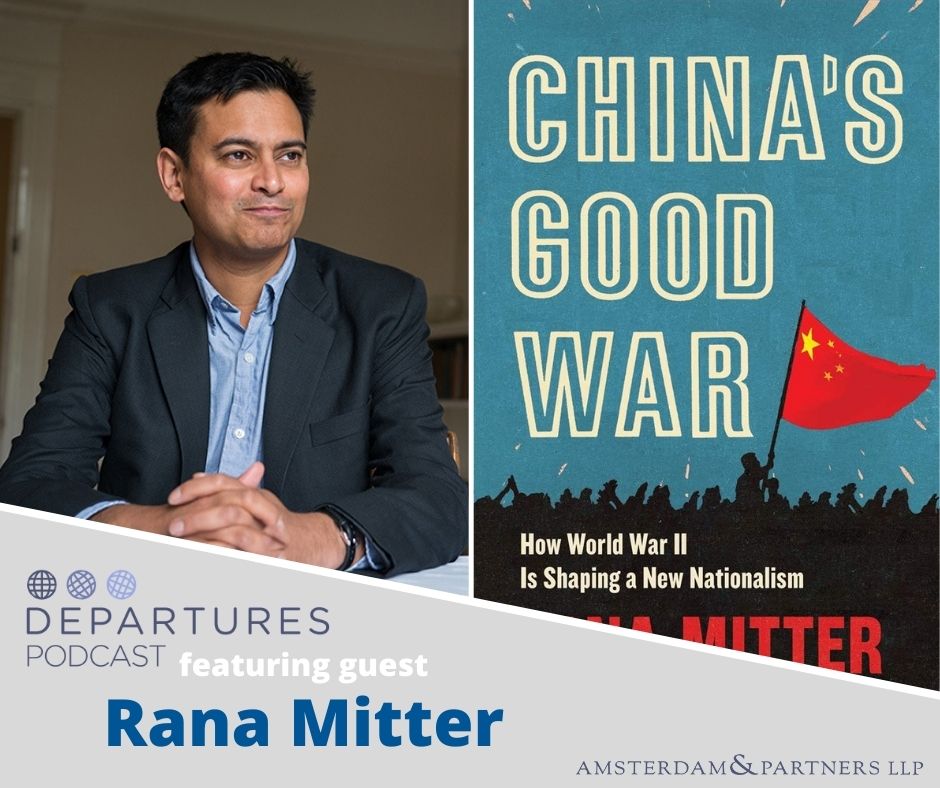Departures Podcast with Rana Mitter

For much of China’s history, the Communist Party leadership sought to portray the country’s experience in World War II as that of a victim of Japan. But now, as China grows much more powerful and influential, the historical memory is also adapting to tell a different story.
This week we are joined by Rana Mitter, a professor of history at Oxford University, who is the author of “China’s Good War: How World War II Is Shaping a New Nationalism.”
Mitter’s book argues that China’s reassessment of the World War II years is central to its newfound confidence abroad and to mounting nationalism at home. These arguments, which include the promotion of China’s role in creating the postwar global order, are reinforced by stronger efforts of public memory of the war, including museums, movies and television shows, street art, popular writing, and social media.
Through these lenses, “Wartime China” emerges as a victor rather than a victim. This reinterpretation of history has both positive and negative impacts on China’s ability to conduct diplomacy under growing nationalism.











